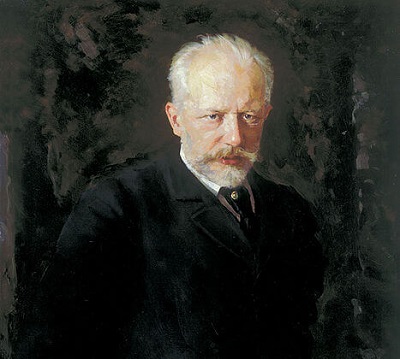Lesson 19: The Nutcracker and the Mouse King - Chapter 10: The Uncle and Nephew
by E.T.A. HoffmanPerformer: LibriVox - Sandra Cullum
If any one of my good readers has ever had the misfortune to cut himself with glass, he knows how it hurts, and how long a time it takes to heal. Whenever Maria tried to get up, she felt very dizzy, and so it continued for a whole week, during which time she was obliged to remain in bed. But at last, she became entirely well, and could play about the chamber as merrily as ever.
Everything in the glass case looked prettily, for the trees, flowers, and houses, and beautiful puppets, stood there as new and bright as ever. But, best of all, Maria found her dear Nutcracker again.
He stood on the second shelf, and smiled upon her with a good, sound set of teeth. In the midst of all the pleasure which she felt in gazing at her favorite, a pang went through her heart, when she thought that Godfather Drosselmeier's story had been nothing else but the history of the Nutcracker, and of his quarrel with Lady Mouserings and her son. She knew well enough that her Nutcracker could be none other than the young Drosselmeier of Nuremberg—Godfather Drosselmeier's agreeable, but now, alas! enchanted, nephew. For, that the skillful watchmaker at the court of Pirlipat's father was the Counsellor Drosselmeier himself, she did not doubt for an instant, even while he was telling the story.
"But why was it that your uncle did not help you? Why did he not help you?" complained Maria, as it became clearer and clearer to her mind, that in that battle which she saw, Nutcracker's crown and kingdom were at stake.
"Were not all the other puppets subject to him, and is it not plain that the prophecy of the astronomer has been fulfilled, and that young Drosselmeier is prince and king of the puppets?" While the shrewd Maria explained and arranged all this so well in her mind, she believed, since she had seen Nutcracker and his vassals in life and motion, that they actually did live and move. But that was not so. Everything in the glass case remained stiff and lifeless. Yet Maria, far from giving up her conviction, cast all the blame upon the magic of Lady Mouserings and her seven-headed son.
"But, if you are not able to move, or to talk to me, dear Master Drosselmeier," she said aloud to the Nutcracker, "yet I know well enough that you understand me, and know what a good friend I am to you. You may depend upon my help, and I will beg of your uncle to bring his skill to your assistance, whenever you have need of it."
Nutcracker remained still and motionless, but it seemed to Maria as if a gentle sigh was breathed in the glass case, so that the panes trembled, scarce audibly indeed, but with a strange, sweet tone, and a voice rang out, like a little bell, "Maria mine—I'll be thine—and thou mine—Maria mine!"
Maria felt, in the cold shuddering that crept over her, a singular pleasure.
Twilight had come on. The doctor, with Godfather Drosselmeier, entered the sitting room, and it was not long before Louise had arranged the tea table, and all sat around, talking cheerfully of various things. Maria had very quietly taken her little armchair, and seated herself close at Godfather Drosselmeier's feet.
During a moment when they were all silent, she looked up with her large blue eyes in the Counsellor's face, and said, "I know, dear Godfather Drosselmeier, that my Nutcracker is your nephew, the young Drosselmeier, of Nuremberg, and he has become a prince, or king rather, as your companion, the astronomer, foretold. All has turned out exactly so. You know now that he is at war with the son of Lady Mouserings—with the hateful Mouse-King. Why do you not help him?"
Maria then related the whole course of the battle, just as she had seen it, and was often interrupted by the loud laughter of her mother and Louise. Fred and Drosselmeier only remained serious.
"Where does the child get all this strange stuff in her head?" said the doctor.
"She has a lively imagination," replied the mother. "In fact, they are nothing but dreams caused by her violent fever."
"That story is not true," said Fred. "My red hussars are not such cowards as that. If I thought so—swords and daggers!—I would make a stir among them!"
But Godfather Drosselmeier, with a strange smile, took little Maria upon his lap, and said in a softer tone than he was ever heard to speak in before, "Ah, dear Maria, more power is given to thee than to me, or to the rest of us. Thou, like Pirlipat, art a princess born, for thou dost reign in a bright and beautiful kingdom. But thou hast much to suffer, if thou wouldst take the part of the poor misshapen Nutcracker, for the Mouse-King watches for him at every hole and corner. I cannot, thou—thou alone canst rescue him, be firm and true."
Neither Maria nor anyone else knew what Drosselmeier meant by these words, and they appeared so singular to Doctor Stahlbaum, that he felt the Counsellor's pulse, and said, "Worthy friend, you have some violent congestion about the head. I will prescribe something for you."
But the mother shook her head thoughtfully, and spoke, "I feel what it is that the Counsellor means, but I cannot express it in words."
 Opera and Ballet
Stories in Music
Opera and Ballet
Stories in Music

 Opera and Ballet
Stories in Music
Opera and Ballet
Stories in Music


